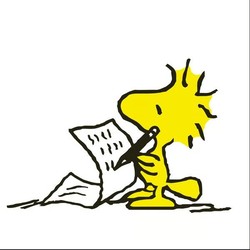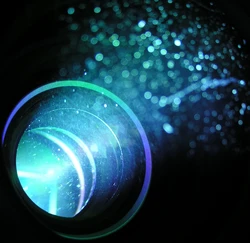I thought it was great. Nice to see a new IP succeeding too. The twins being superficially, uh identical, while being played by the same actor could have backfired but I felt like the film did well to give them their own distinct personalities.
One thing that stuck with me was the racial politics of the vampire coven. When people were turned to vampires they became homogenised and lost part of their person/self and this seemed to be a metaphor for people losing their black identity by being forcibly integrated into a white system. It was unclear whether they recovered some of their personhood when the head vampire was killed but I think that’s what the film was saying in the post-credits scene.
Yes! So many similar thoughts here - plus the vampire metaphor of drinking people’s blood … and the long discussion about inviting the vampire into their space almost seems like a comment on civility politics maybe?
And yeah as you say, the loss of identity and thereby a loss of connection to the past and future, due to an extractive and homogenizing mode of integration.
To me (and again, my understanding of Fanon is SUPER limited so I could be getting this entirely wrong!) this seems like it draws on Fanon’s critique of Hegel’s master-slave dialectic, where true recognition of the oppressed in the master’s/colonizer’s system is impossible due to racial politics, and the only viable option is the overthrow of that system.
The other bit that stuck with me was the part about having been truly free during those evening hours - where there really did appear to be mutual recognition of each other’s personhood, even the wooden nickels were ultimately accepted as a worthy substitute to the US Dollars that Stack would have initially preferred.
Read someone else saying the vampire coven is like a group of Christian missionaries and that interpretation makes sense
The warehouse party scene was recommended to me as being excellent for testing surround sound systems.
I can confirm this, I still havent seen the movie but damn the audio mastering is excellent.
Ha - yeah it’s funny, we just have a stereo setup and I made the wise decision to download a file with a stereo mix, even commented at one point that I was glad I’d done that because of how important the sound was
OK so brief thoughts: obviously super creative, really amazing sound/score/soundtrack. But I think also really interesting in terms of theory.
Like, I’ve barely scratched the surface when it comes to learning about Frantz Fanon, but from what I do know, this movie seems to draw heavily on his work on race, decolonisation, Hegel, and so on.
I’ve looked around for a review that talks about this aspect of the movie but haven’t found one yet. If anyone sees one lmk :)
Anyway, had some interesting chats with the spouse. One thing we couldn’t quite figure out was the choice to change the screen ratio at specific points in the movie. I might have a theory, but I’m curious if anyone else felt like they understood why they did this?
Thank you for creating this post
One thing we couldn’t quite figure out was the choice to change the screen ratio at specific points in the movie. I might have a theory, but I’m curious if anyone else felt like they understood why they did this?
Coogler sort of explains it here. My understanding is that he was trying to balance immersion in the big moments with the options most people would have available to them. I don’t think there was a deep narrative/thematic reasoning behind it.
Still very cool though, even if it’s more of a ‘vibe’ thing than something more explicitly theoretical/philosophical or whatever.
A neighbour of mine is a children’s book editor, at one point I asked them what they were working on, and they told me about a book going to print that, in the big moments, has pages that unfold to match the size and intensity of the character’s emotions. I thought that was pretty awesome as well, really interesting use of the format.
Which, I dunno, thinking more as I’m typing this - in some ways what Coogler was doing there still fits in with a reading of Fanon, who of course was also a psychoanalyst.
Like, the big moments expanding the screen, becoming an even more visceral experience, while also, due to the ratio shift, inviting the viewer to think not just about what’s being shown but how - intentional or not, I think it does speak to something about the way we process things on multiple levels, how we create memories, how we create links to the past and future, what it means to be free … even if it only spoke to those things tangentially.
At the same time, this could all be motivated reasoning on my part though, protect my own ego via protecting my pet theory ;)



